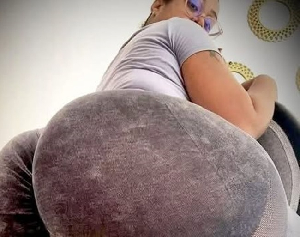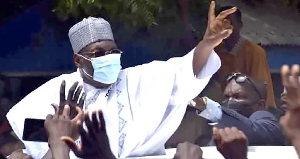Millions have declared "Je Suis Charlie" on social media - but now over 50 people have tried to trademark the image in France alone, and the creator of the campaign is angry.
He created the original "Je Suis Charlie" picture - but now he's worried that commercial interests might ruin the sentiment behind the phrase. Joachim Roncin lives with his family five minutes away from Charlie Hebdo's offices in Paris, and he works for the French edition of Stylist, a fashion magazine. When he and his colleagues first heard of last week's attacks, they fell into a stunned silence.
"We were in the production room working on our next issue, and at one point one of my colleagues saw reports of the shooting on Twitter," he told BBC Trending.
"We were all shocked. I saw messages like, 'I'm horrified' and 'I'm disgusted' repeated all around the world - all of these messages of despair," he said. "I searched for the Charlie Hebdo logo and I looked at deeply two or three minutes and I thought about what it meant to me.
"I was so hurt and so speechless ... the cartoonists working for Charlie Hebdo were pushing the limits all the time just to shake things up, and it's always good to have people who shake things, because this is what changes the world."
Roncin fashioned a simple graphic in the same font as the magazine's title. Although he had only around 400 followers on Twitter at the time, it quickly spread, and in the last week #JeSuisCharlie has been tweeted around 7m times - one of the most repeated news-related hastags ever (although rumours suggesting it's Twitter's most popular tag of all time are off the mark).
"I really didn't make it to make a buzz or anything," he says. "Tons and tons of ordinary people sent me messages of congratulations. But it's very strange to receive congratulations on something that's so horrible ... so at first I did not say 'thank you.'
"Eventually I understood they were thanking me because they were finding out what they themselves were thinking through this message. They were finding out what they were trying to express.
"This is what Je Suis Charlie actually means: I am free, I am not afraid."
“I want this message to stay pure. ... I would be disgusted if someone just tried to make money off it.”
Joachim Roncin says he was soon getting a huge amount of media attention and was dismayed at some inaccurate reporting - for instance one outlet reported that he was afraid to show his face for fear of reprisals. (He declined a request to talk on camera to BBC Trending because he said he did not want to become a figurehead or leader of a movement or detract from the focus on the victims of the attacks.)
But more recently another issue has come up - the possible use of "Je Suis Charlie" for commercial purposes. Reports indicate that there have been more than 50 French trademark applications for the phrase - none connected with Roncin.
Roncin says he's only agreed to allow one organisation, the media freedom NGO Reporters Sans Frontières (Reporters Without Borders), to use his original artwork. And he's consulted lawyers in the hopes of stopping any commercial use of the slogan.
"It's horrible to think for one second that this slogan that is full of hope, someone will own it," he says.
"I want this message to stay pure. The four million people who were on the streets in Paris on Sunday - they shouted this message. They shouted it on the streets of London and New York and all around the world. I would be disgusted if someone just tried to make money off it."
Blog by Mike Wendling
You can follow BBC Trending on Twitter @BBCtrending
Opinions of Wednesday, 14 January 2015
Auteur: BBC
Je Suis Charlie creator: Phrase cannot be a trademark
Culture














